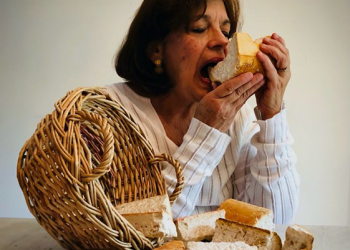Improvised oral poetry has been part of Cuban culture since its introduction into the country by Spanish immigrants, mainly from the Canaries Islands, and grew as a spontaneous art, through interests, attitudes and particular skills, and has passed from one generation to another.
Traditionally, repentismo (the art of singing improvised decimas (10-line stanzas) is preferred by those living in rural areas and the best exponents come from there, but there are very good examples of quality in cities.
The truth is that for various reasons, improvised oral poetry has stayed from academies and specialized education, scholars point out as a major cause for that the absence of a sequential approach to its teaching, so it was transmitted orally and among those who lived with a repentista, usually close relatives, neighbors and by the method of repetition and imitation.
According to sources accessed to some time ago Cuban researcher, poet and repentista Alexis Díaz Pimienta conducted relevant studies and developed a methodology for teaching repentismo, which has been implemented with the creation of the Experimental Chair of Improvised Poetry (CEPI), which is a collaboration of the Ibero-American Center of Decima and Improvised Verse (CIDVI) in Havana and the University of the Arts (ISA.
This experience led to the creation of spaces for the formation of a group of poet-professors in methodological seminars with the participation of representatives from different provinces among which was included Las Tunas, in order to extend the teaching repentismo to the greatest number of children.
The Iberoamerican House of Decima (CID) based in that city, had already some experience working with children and adolescents, as the poet Carmen Hermeides Pompa, who was a specialist in Music and repentismo at the institution, performing since 1997, although not in a systematic way, but through annual improvement actions.
From that moment, it was created a project of a draft specialized workshops of repentismo for children and adolescents with the intention of taking this type of education to all municipalities in the province of Las Tunas, for which the repentismo Specialist Argel Fernandez Granado, project coordinator in that territory, received the methodological seminar taught by Alexis Díaz himself, and in turn passed on his knowledge and experience to other poets, enabling them to teach the classes with the quality and rigor required by the newly established methodology.
The implementation of the new education system of repentismo in the province of Las Tunas started in the month of September 2002 when a workshop started in the main municipality. They enriched the work through a thorough search and acquisition of potential talent in the community, in addition to the teachers who prepared methodologically, involving cultural promoters of different Councils, who do their work in the neighborhoods and schools of primary and secondary education.
For the dissemination of country music in the cultural centers of all municipalities in the country, there are Children repentismo Workshops, which are branches of the Chair of that type created by Alexis Pimienta; they are carried out with all those children interested into learning this art and the teachers are poets of the town.
The workshops are attended by children mostly from rural areas, as the territory is a predominantly agricultural area where there are no large cities, but small towns and settlements where country music is very popular.










